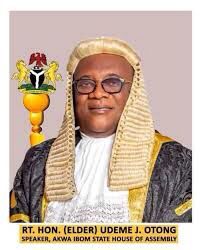
Criticism has been directed at the composition of HCDT members, with communities alleging that nominees were selected by individuals rather than through community consensus. This raises questions about the legitimacy and representativeness of the Trust’s decision-making process.
By Edet Edet & Kyte Usen
The enactment of the Petroleum Industry Act (PIA) in 2021 by the Muhammadu Buhari’s administration marked a significant milestone in Nigeria’s quest to revamp its oil and gas sector.
Designed to overhaul the industry’s legal, governance, regulatory, and fiscal framework, the PIA also prioritized the development of Host Communities, acknowledging their pivotal role and the adverse effects of oil exploration within their territories.
Central to the PIA’s community development strategy is the establishment of Host Community Development Trusts (HCDTs), tasked with fostering sustainable prosperity and facilitating peaceful coexistence between licensees and host communities.
This framework replaced the previous reliance on company-specific agreements, such as Memoranda of Understanding (MOUs) and Global Memoranda of Understanding (GMOUs), by mandating a three percent annual contribution from the total expenditure of licensees to the Trust.
While the introduction of HCDTs was welcomed as a progressive step towards addressing the developmental needs of oil-bearing communities, concerns have emerged regarding their effectiveness, particularly in states like Akwa Ibom.
Criticism has been directed at the composition of HCDT members, with communities alleging that nominees were selected by individuals rather than through community consensus. This raises questions about the legitimacy and representativeness of the Trust’s decision-making process.
Furthermore, a thorough scrutiny of the 5-year Community Development Plan of the NNPC/MPN EMOIMEE JV HCDT in Akwa Ibom State has revealed discrepancies between proposed projects and community priorities.
Projects such as the construction of village head palace, fencing of primary schools, and planting of palm fruit in land-scarce communities have faced widespread rejection due to their perceived lack of relevance and consultation with the community.
In light of these challenges, it is imperative for the regulatory body, The Nigerian Upstream Petroleum Regulatory Commission (NUPRC) to provide clear guidelines for monitoring HCDT activities.
While the PIA’s provisions for Host Community Development hold promise for fostering socio-economic growth and mitigating the negative impacts of oil exploration, their realization hinges on addressing governance gaps and enhancing community participation in decision-making processes. Only through robust oversight and genuine collaboration can HCDTs fulfill their mandate and contribute to the holistic development of host communities.
In conclusion, community stakeholders advocate for a thorough reassessment of the procedures governing the selection of HCDT members and the prioritization of development projects within host communities. This call reflects a collective desire to address lingering uncertainties surrounding the operational integrity of HCDTs.
By revisiting these modalities, stakeholders aim to instill confidence and ensure that HCDTs align closely with community needs and aspirations, thereby fostering trust and effective community development initiatives.
Additionally, there is also a pressing need to establish an independent body tasked with probing the Trust’s operations to ensure transparency, accountability, and alignment with community interests.
Related Articles

When Politics Summons the gods: Why Nigerians keep mistaking performance for progress.
In a country where politics often borrows the language of the sacred, even conflict becomes performance. From libations to masquerades, the Akpabio saga has once again turned public attention from policy to spectacle. Sometimes I think we Nigerians love drama more...

How the Nigerian Protester Became the Oppressor
In the 1990s, Bola Ahmed Tinubu’s name was synonymous with defiance. Through NADECO, he helped rally voices against military rule. The man who once thundered against dictatorship, who wore the badge of democracy’s martyr with pride, was celebrated as a symbol of...

How the Nigerian Protester Became the Oppressor
In the 1990s, Bola Ahmed Tinubu’s name was synonymous with defiance. Through NADECO, he helped rally voices against military rule. The man who once thundered against dictatorship, who wore the badge of democracy’s martyr with pride, was celebrated as a symbol of...

0 Comments